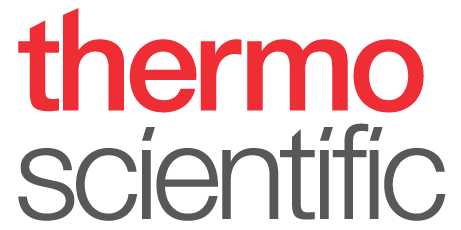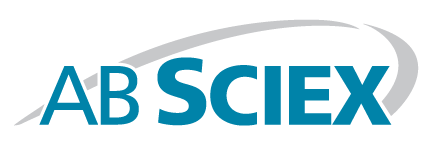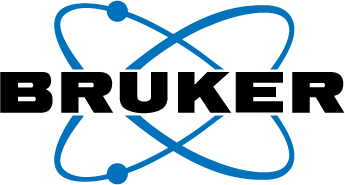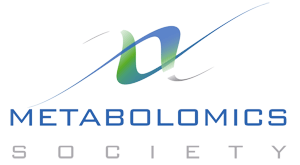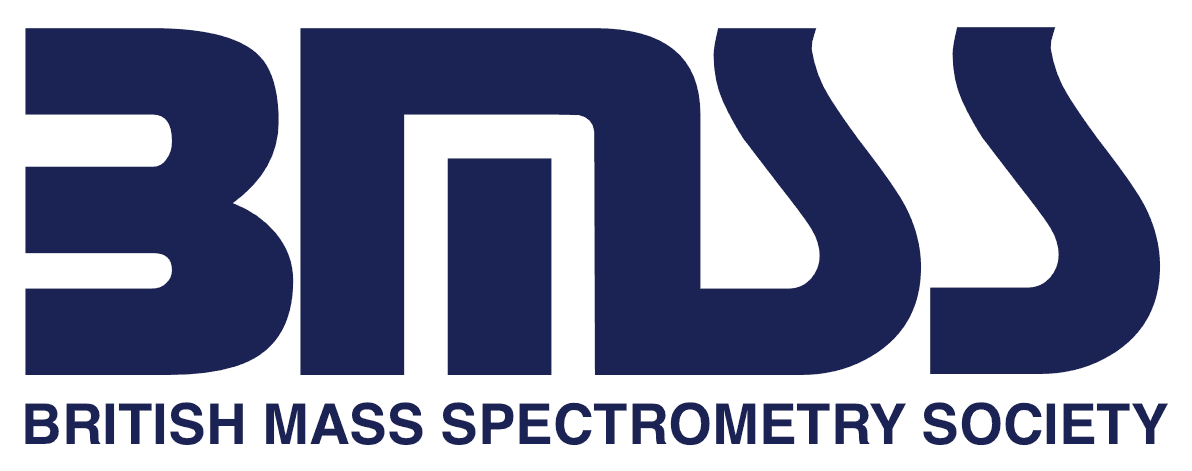MSACL 2014 EUSalzburg, Austria: Sept 2-5 |
Details
MSACL EU
EUROPE 2014
Short Courses
Registration InformationMSACL offers short courses that address topics related to mass spectrometry fundamentals and clinical applications at beginner (Level 1), intermediate (Level 2) and advanced (Level 3) levels.
Courses are also offered in the General Interest category (Level 0).
Short Courses cover 1 to 2 days on Tuesday and Wednesday (September 2-3).
Please refer to the Level specifications below to assess courses most suited to your level of experience.
| Level 0: | General Interest. |
| Level 1: | No previous significant exposure to mass spectrometry. |
| Level 2: | Moderate understanding of mass spectrometry with hands-on experience. |
| Level 3: | Extensive hands-on experience with GC-MS and/or LC-MS/MS. |
Preparing Manuscripts for Publication: Improving Your Chances for Success
Thomas Annesley, PhD
Level: 0 (General Interest)
Length: 1 Day (Wednesday)
Solid Phase Microextraction (SPME) and Other Solventless Sampling and Sample Preparation Technologies for Laboratory and On-Site
Dr. Janusz Pawliszyn & Dr. Barbara Bojko
Level: 2 (Intermediate)
Length: 1 Day (Tuesday)
Notes: Pair this Course with How to Process Body Fluids for LC-MS/MS Analysis of Small Molecules on Wednesday for a discounted rate.
How to Process Body Fluids for LC-MS/MS Analysis of Small Molecules
Karl-Siegfried Boos, PhD
Level: 2 (Intermediate)
Length: 1 Day (Wednesday)
Notes: Pair this Course with Solid Phase Microextraction (SPME) and Other Solventless Sampling and Sample Preparation Technologies for Laboratory and On-Site on Tuesday for a discounted rate.
Introduction to Clinical Mass Spectrometry
Judy Stone, PhD & Daniel Holmes, MD
Level: 1 (Beginner)
Length: 2 Days (Tuesday - Wednesday)
Detection of Pathogens and Toxins using Mass Spectrometry
Jean Armengaud, PhD
Level: 2 (Intermediate)
Length: 2 Days (Tuesday -
Wednesday)
Development and Validation of Quantitative LC-MS/MS Assays for Use in Clinical Diagnostics
Russell Grant, PhD & Brian Rappold
Level: 3 (Advanced)
Length: 2 Days (Tuesday -
Wednesday)
*Notes:
- Two day courses are NOT the same courses replicated on two separate days. They are single courses that span two days.
- Unless otherwise noted, courses are from 8:15AM - 4:30PM. Lunch and Coffee Breaks (morning and afternoon are provided).
See Registration for pricing.
Preparing Manuscripts for Publication: Improving Your Chances for Success
Registration Information| Instructor(s): | Thomas Annesley, PhD |
| Level: | 0 (General Interest) |
| Length: | 1 Day (Wednesday) |
Prerequisites: None necessary. Introductory course.
Overview: Scientific publication is an important and necessary activity for researchers. Being a good researcher, however, does not automatically make you a good writer. Good science is the foundation of a scientific paper, but how the science is presented also strongly influences whether a paper gets accepted for publication. This session focuses on key elements of writing a scientific paper, starting with the first word put onto a page to the final printed product:
|
|
After this session, participants will be able to:
- bring greater clarity and consistency to a scientific paper;
- describe the features that distinguish papers accepted for publication;
- organize the major sections of a scientific paper; and
- create more effective tables and figures.
Instructor: Thomas Annesley, PhD
Thomas M. Annesley, Ph.D., is Professor of Clinical Chemistry at the University of Michigan. He is the Deputy Editor of the journal Clinical Chemistry, and has more than 20 years of experience in journal editing and teaching about biomedical writing.
Solid Phase Microextraction (SPME) and Other Solventless Sampling and Sample Preparation Technologies for Laboratory and On-Site
Registration Information| Instructor(s): | Dr. Janusz Pawliszyn & Dr. Barbara Bojko |
| Level: | 2 (Intermediate) |
| Length: | 1 Day (Tuesday) |
| Notes: | Pair this Course with How to Process Body Fluids for LC-MS/MS Analysis of Small Molecules on Wednesday for a discounted rate. |
Prerequisites: The course is targeted at new and current SPME, TFME and NT users. It will be of interest to analytical chemists, laboratory supervisors, scientists and industry regulators in the pharmaceutical, clinical, cosmetic and other fields. The features of in vivo sampling will be of particular interest to biologists and life scientists.
Overview:
- Introduction to solventless technologies
- Theoretical principles of SPME, TFME and NT
- Sample introduction and related devices
- Calibration approaches
- Method development
- Automation
- Therapeutic drug monitoring
- Ligand-receptor binding studies
- Metabolomics and biomarkers discovery
- In vivo sampling
During the course solventless sampling and sample preparation methods such as Solid Phase Microextraction (SPME), Thin Film Microextraction (TFME) and Needle Trap (NT) will be discussed. This course will cover the main principles of the techniques, calibration methods, coupling strategies of SPME and related technologies to GC, MS and MS, method development strategy, as well as advantages and disadvantages of each technique. Applications of the technologies in the fields such as forensic, pharmaceutical and clinical analysis will be discussed. Advances in the methods will be highlighted including: ligand-receptor binding and plasma protein binding studies, breath and skin analysis, in vivo sampling of freely moving animals for pharmacokinetic and metabolomic studies, automation in high-throughput format, direct tissue analysis with particular focus on intraoperative monitoring of drugs and biomarkers.
Dr. Janusz Pawliszyn is the inventor of SPME and a professor in the Department of Chemistry, University of Waterloo, Canada. He is the author of over 500 journal publications, 20 book chapters, and over 250 invited/plenary lectures. He has received several prestigious awards for his scientific achievements, and SPME is considered one of the six “Great Ideas of a Decade” by ACS Analytical Chemistry journal. He presently holds the Canada Research Chair and NSERC Industrial Research Chair in New Analytical Methods and Technologies.
Dr. Barbara Bojko obtained her medical diagnostician diploma, MSc, PhD (Hon) and DSc from pharmaceutical sciences with the specialization in pharmaceutical biochemistry. She is the author of 57 journal publications. She has over ten years of academic research and teaching experience. She was awarded several times for scientific achievements in the field of ligand-receptor interactions. Currently, as a research associate in Professor Janusz Pawliszyn’s group and assistant professor at Collegium Medicum University of NicolausCopernicus her research is focused on biomedical applications of SPME, especially on drug monitoring therapy, metabolomics and in vivo analysis for clinical applications.
How to Process Body Fluids for LC-MS/MS Analysis of Small Molecules
Registration Information| Instructor(s): | Karl-Siegfried Boos, PhD |
| Level: | 2 (Intermediate) |
| Length: | 1 Day (Wednesday) |
| Notes: | Pair this Course with Solid Phase Microextraction (SPME) and Other Solventless Sampling and Sample Preparation Technologies for Laboratory and On-Site on Tuesday for a discounted rate. |
Prerequisites: General knowledge of bioanalytical laboratory techniques
Overview: The course covers:
- Integration and automation of selective clean-up of complex body fluids (e.g. whole blood, plasma, urine) using SPE and column switching (SPE-LC).
- Instrumentation, operational procedures and practical guidelines for hyphenation of SPE - LC with UV, ECD and/or MS/MS
- Properties and performance of tailor-made SPE packing materials (e.g., restricted access materials, RAM; mixed-mode polymers, MMP; molecularly imprinted polymers, MIP)
- POPLC: An attractive way and valuable tool to find the optimal LC-column in combination with on-line SPE
- MS adequate processing of body fluids by means of on-line (turbulent flow) SP-LC
- General introduction to understanding, monitoring and elimination of ion suppression / matrix effects in bioanalytical LC-MS/MS
- Multidimensional SPE for utmost sample clean-up
- Depletion of phospholipids for undisturbed MS/MS analysis
- Preanalytics and processing of body fluids (Cell-Disintegrated Blood, CDB; Dried Matrix/Blood Spots, DXS; Dried Matrix/Blood Extracts, DXE)
Instructor: Karl-Siegfried Boos
Karl-Siegfried Boos studied Biochemistry at the University of Hannover, Germany. He became involved in bioanalytical HPLC already in the late sixties. Since then one of his major research topics was on HPLC hyphenated with SPE, post-column reactors and various detectors for (trace) analysis of complex fluids. He developed tailor-made packing materials for direct injection and on-line SPE of body fluids in the fields of biological monitoring and clinical-chemistry. His research interest is also on the standardization of preanalytics for body fluids. Dr.Boos established multidimensional SPE-platforms upfront to LC-MS/MS systems and developed unique procedures to process body fluids in-line to make them directly applicable for liquid separation techniques.
In 1990 he established the Laboratory of BioSeparation at the Institute of Clinical Chemistry , Medical Center of the University of Munich, Germany. Dr. Boos is author and co-author of over 100 original publications in the fields of Biochemistry, Analytical Chemistry and Medicine. He has been invited to numerous national and international meetings as plenary or keynote lecturer as well as to present tutorials and short courses. Dr. Boos has been a member of the Editorial Advisory Boards of "Journal of Chromatography B" and "Journal of High Resolution Chromatography". From 2000 till 2010 he served as co-editor of the journal "Chromatographia".
Introduction to Clinical Mass Spectrometry
Registration Information| Instructor(s): | Judy Stone, PhD & Daniel Holmes, MD |
| Level: | 1 (Beginner) |
| Length: | 2 Days (Tuesday - Wednesday) |
Prerequisites: None
Overview:
Tentative Course Outline
Day 1:
- Basics of MS1 - Principles of instruments, ionization, etc.
- Selecting and Installing LC-MSMS - due diligence, site prep, daily maintenance & instrument startup, checklists, System Suitability testing, cutting tubing, making LC connections
- Basics of LC - Instrument components and LC theory, gradients
- Preparing for your first batch - selecting solvents, water, reagents, internal standards, glassware, making mobile phases (pH meter), doing infusions, calculations (salt vs free base), making calibrators
- Basics of MS2 - isotopes, fragmentation, isotopic overlap, cross talk, Best Practices for calibration, selecting internal standards
- Sample Preparation Theory1, - describe purpose of sample prep, dilute, protein crash, LLE advantages and disadvantages
- Sample Preparation - Hands on tips, troubleshooting, case histories, Best practices
- Sample Preparation Theory2 - SPE, SLE & variants, PL removal, automation
Day 2:
- Validating Assays1 - plan, differences between validation for automated chemistry vs LC-MSMS, ion suppression, matrix effect interferences, containers (anticoagulants & tubes)
- Troubleshooting, Maintenance & Repair1 - MSMS and IT issues, case histories, Best Practices
- Validating Assays2 - pre-validation stress testing, precision, accuracy, linearity, stability of samples, reagents, mobile phases, stock solutions, etc.
- Troubleshooting, Maintenance & Repair2 - LC problems - human error, insufficiently robust methods, wear & tear
- Validating Assays3 - Patient sample comparisons & remaining topics
- Troubleshooting 3 - Sample Prep, common mistakes, case histories
- Data Analysis - calibration curve construction, evaluation, frequency, troubleshooting, QC practices, data review recommendations (MRM ratios, RRts, peak width & symmetry, internal standard recovery, etc), checklists
- Maintaining quality in production & increasing throughput - automation, ruggedness, monitoring & documentation, case histories, best practices
Detection of Pathogens and Toxins using Mass Spectrometry
Registration Information| Instructor(s): | Jean Armengaud, PhD |
| Level: | 2 (Intermediate) |
| Length: | 2 Days (Tuesday - Wednesday) |
Prerequisites: Moderate understanding of mass spectrometry with hands-on experience
Overview: This course will present current mass spectrometry-based technologies for the detection of pathogens and toxins. We will present established sample preparation methods, mass spectrometry tools with a brief overview of the principles of mass analysis, and analytical protocols. We will also unveil novel methodologies that are currently emerging for the analysis of difficult samples, such as mixtures of pathogens, spores, and toxin traces. We will discuss both the strengths and potential pitfalls of these methodologies.
Lead Instructor: Jean Armengaud, PhD
Jean Armengaud is best known for his work on the proteogenomics of bacteria and the characterization of pathogens and radiotolerant organisms. He directs a mass spectrometry research unit located near Avignon in France that is dedicated to toxicoproteomics and the proteomics-based identification and classifcation of pathogens and environmentally relevant bacteria (phylopeptidomics). Previously, he spent six years as a postdoctoral fellow in the Department of Microbiology at the Helmholtz Centre for Infection Research, Braunschweig, Germany and at the Structural Biology Institute, Grenoble, France.
Development and Validation of Quantitative LC-MS/MS Assays for Use in Clinical Diagnostics
Registration Information| Instructor(s): | Russell Grant, PhD & Brian Rappold |
| Level: | 3 (Advanced) |
| Length: | 2 Days (Tuesday - Wednesday) |
Prerequisites: The target audience should have extensive familiarity with LC-MS/MS systems.
Overview: This 2-day course will briefly introduce the key aspects of the LC-MS/MS experimental workflow and then focus on processes and experimental designs for assay development and analytical validation of assays to be employed within clinical diagnostics.
The first day will describe method development in detail, including how-to guides for initial optimization of mass spectrometry systems, chromatographic development and sample preparation schemes. Techniques and technologies for streamlining analytical performance will also be described. Transitional experiments from development to validation will be discussed in detail to stress test methodologies prior to analytical validation.
Day two will cover all details pertinent in validation of LC-MS/MS analytical workflows. Experimental designs for all aspects of validation, putative acceptance criteria and analytical solutions will be shown. Key validation criteria of selectivity, carry-over, matrix effect, accuracy, precision, linearity, stability and inter-assay correlation will be described using multiple case studies.
Instructor: Russell Grant
Dr. Grant received his PhD in chromatographic and mass spectrometric technologies from Swansea University in 1995. He continued his scientific training in various industrial settings which have included: senior scientist at GSK, principal scientist at Cohesive Technologies, Technical Director at Eli Lilly and Director of Mass Spectrometry at Esoterix Endocrinology.
Dr. Grant has pioneered the use of direct injection technologies, chromatographic systems multiplexing, utility of automation and new analytical platforms for application in bioanalytical applications. His research goals are focused upon improvements in speed, sensitivity and quality of LC-MS/MS analytical systems and assays.


